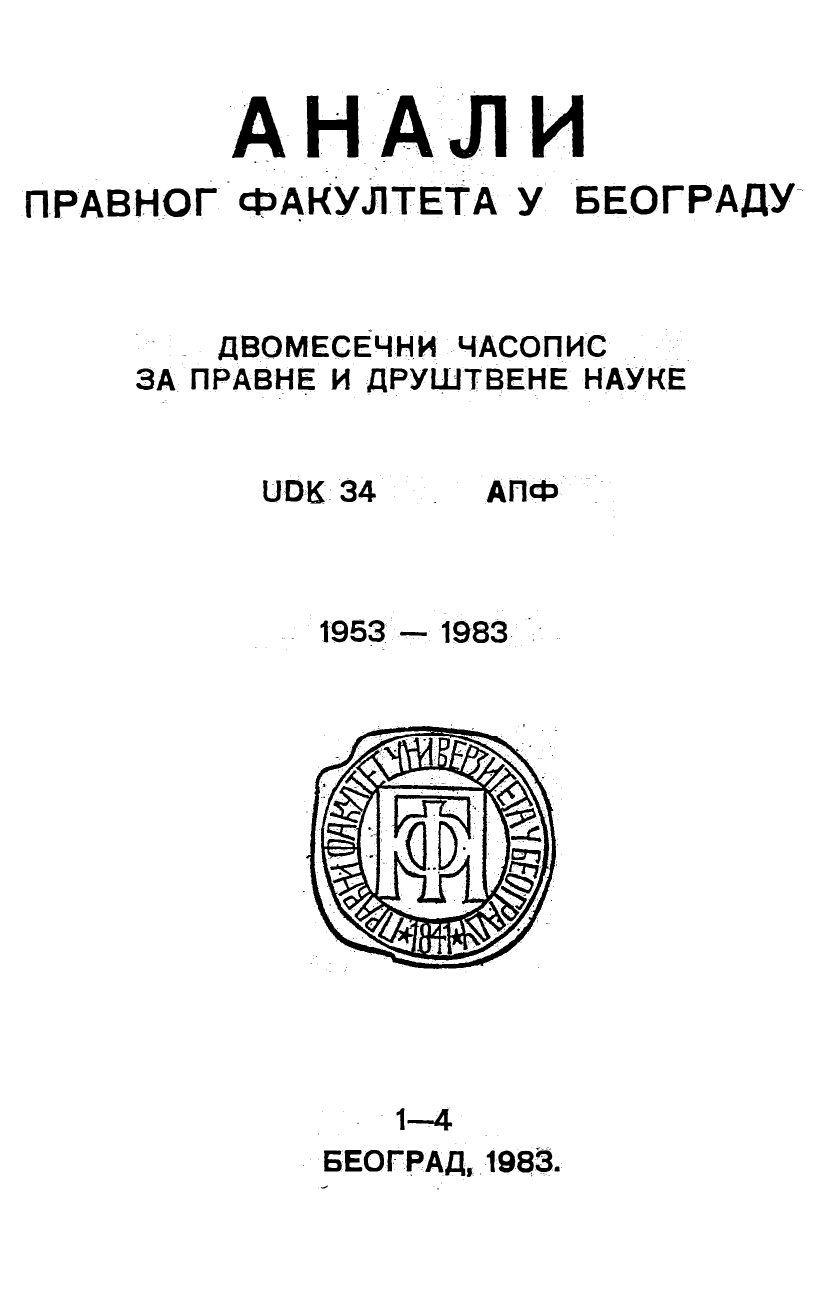"GRUNDRISSE” И МАРКСОВ КОНЦЕПТ АНТИЧКОГ ТИПА ПРОИЗВОДЊЕ И ЗЕМЉИШНЕ СВОЈИНЕ
GRUNDRISSE AND MARX’S CONCEPT OF THE CLASSICAL TYPE OF PRODUCTION
Author(s): Sima AvramovićSubject(s): Language and Literature Studies, Law, Constitution, Jurisprudence, Studies of Literature, German Literature, Roman law
Published by: Правни факултет Универзитета у Београду
Summary/Abstract: In Marx’s „Grundrisse der Kritik der politischen Oekonomie”, there are, besides prevelantly economical and philosophical discourse, also certain historical, and legal problems, and especially the question of the form of production and ownership over land in the pre-capitalist era. Laying emphasis on three such forms preceding capitalist production (as!atic, classical and german), Marx studied the classical type of production and ownership over land mainly on the basis of data on the Roman empire and law. This concept of his can be summarized in several main components, namely: that the classical type of production is characterised bu the concentration of permanent residence in the city-state, which is the basis of military organization; that the members of the community are engaged both as small farmers and soldiers; that as such they enjoyed equal rights; also, that the classical type of ownership over land is characterized by the fact that ownership over land was both state ownership and private ownership. In his work, the author, analysing the sources on the Greek state and law, published after Marx’s death, concludes that Marx’s concept of the classical form of production conforms to a considerable extent to the data on the oldest known history of Greek law. However, pointing out the non- -existence of individual private ownership over land in Greek, and especially Dorian, polises and connecting Marx’s concept of the classical form of ownership over land in the „Grundrisse’’ with the one set out in the „German Ideology”, the author is of the opinion that this dualism of form of ownership over land Marx atributed — that is, thought that it should be atributed — predominantly to the so-called secondary form of the classical type. Its main form would, at least according to Greek sources, be more characterised by collective ownership of the community, in other words, family ownership over land, accompanied by the lack of individual private ownership.
Journal: Анали Правног факултета у Београду
- Issue Year: 31/1983
- Issue No: 1-4
- Page Range: 23-39
- Page Count: 17
- Language: Serbian

